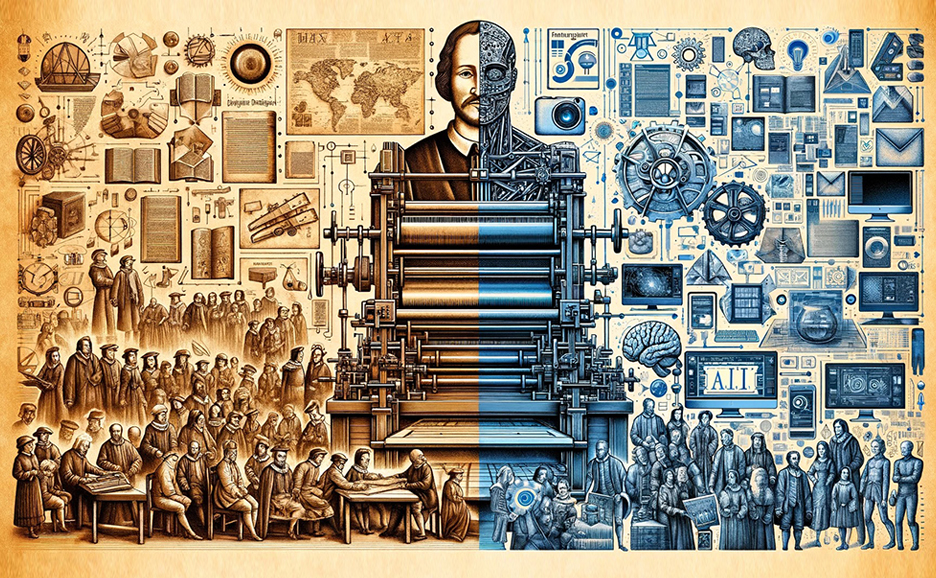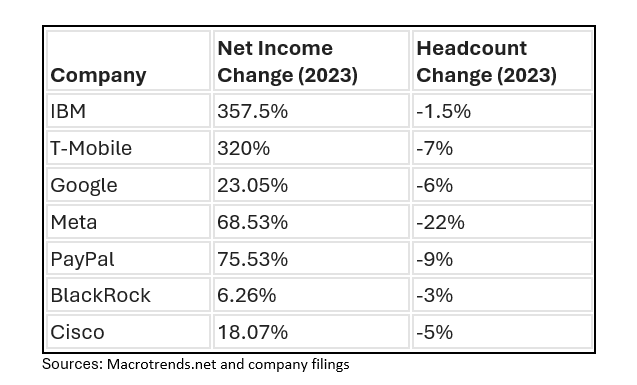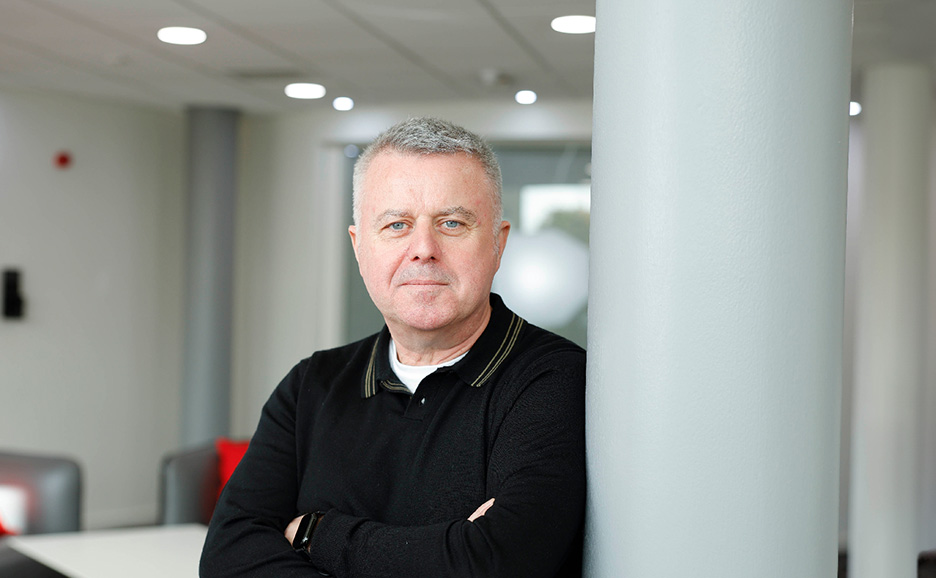AI: The Digital Age's Gutenberg Printing Press

Article|2024-04-05
3 minute read
Artificial Intelligence is the modern-day equivalent of Gutenberg's printing press in a world focused on efficiency. Much like the 15th-century breakthrough that made books widely accessible, AI democratises access to information and intelligence, transforming business operations, enhancing efficiency, and propelling productivity.
The parallels are striking. Gutenberg's printing press displaced traditional scribes, transforming the labour market and information sharing. AI is revolutionising industries by automating processes and enabling data-driven decision-making. As we transitioned from manual to mechanised labour during the Industrial Revolution, we're witnessing a shift from physical to intellectual labour today, with AI leading the way.
This shift is evident in the performance of major technology companies over the last 12 months:

Like the Gutenberg printing press, AI represents a technological revolution with far-reaching implications. Both reduced reliance on manual labour and have set the stage for a transformative change.
Businesses must adapt to the evolving dynamics of human capital and technology. The balance between the two will shape the next era of economic growth and innovation, with AI leading the charge to achieve more with less. AI's role in driving innovation and competitive advantage is crucial for businesses to stay ahead in the market.
Amara’s Law suggests we overestimate the short-term effects of technology while underestimating its long-term impacts. This phenomenon is evident in the history of railroads, cars, television, and personal computers, where initial scepticism gave way to profound societal transformations once the technology was widely adopted. Businesses engaged in AI Investment and strategy should use Amara’s Law as a framework to think about the changes AI will bring. Today's decisions regarding investment, adoption, and experimentation will determine which companies thrive - whether a business faces a Netflix or a Kodak moment in terms of opportunity.
The printing press spurred the Renaissance and the Reformation and laid the groundwork for political and social change, contributing to the spread of democracy and the rise of nation-states. AI's long-term impacts could reshape education, revolutionise healthcare, and redefine the nature of work. It may also help us tackle global challenges, from climate change to healthcare disparities. Like the printing press, AI's true potential will likely unfold over decades and reshape society in ways we are only beginning to imagine. As Facebook Chief AI Scientist Yaan LeCunn puts it, ‘The amplification of human intelligence by machine intelligence will enable a new Renaissance, a new period of Enlightenment.’
For a glimpse of the future, look at Berkeley's Self-Driving Labs, which are revolutionising scientific research by automating knowledge creation and accelerating discoveries. They can test and iterate 100 times faster than a human scientist, synthesising over 700 new materials with AI's help. Polybot at Argonne National Laboratory autonomously conducts chemical experiments using machine learning and robotics. The Consortium's Matter Lab, leveraging DeepMind's AlphaFold, designed and synthesised a new cancer drug in just thirty days—a process that traditionally takes years and massive R&D budgets. These advancements exemplify the fusion of digital and physical realms in science, offering the potential for faster and more efficient research with the capacity to revolutionise industries and society.
The emergence of self-driving labs and AI-driven science marks a fundamental shift in knowledge creation. This new 'science-as-a-service' approach sees AI not only assist in the scientific process but also independently generate and test hypotheses. This shift signifies AI moving beyond pattern recognition to actively creating knowledge, pushing the boundaries of science at a remarkable speed.
AI-driven science impacts sectors like materials science and pharmacology by speeding up the discovery of new materials and drugs. This transformation in research and innovation enhances efficiency and leads to breakthroughs previously deemed impossible. For businesses, this translates into the emergence of new products, services, or industries, offering opportunities for growth and advancement.
AI's transformative impact on business operations, productivity, and knowledge creation mirrors the revolutionary influence of the Gutenberg printing press. As AI evolves, its profound and far-reaching implications for society, education, and science herald a new era of enlightenment powered by machine intelligence.
Graeme Beardsell
Executive Vice President and Chief Executive Officer
Fujitsu Asia Pacific
Graeme Beardsell was appointed to EVP and CEO of Fujitsu Asia Pacific effective 1 April 2022 from the position of CEO of Fujitsu Australia and New Zealand, which he commenced in late 2020. Since joining Fujitsu, Graeme has led Fujitsu’s shift from a horizontal, traditional services company to an industry-aligned, digital transformation services organisation. He has set his sights on elevating Fujitsu to become the chosen provider of IT Services, targeting growth to AU$1.5billion in revenue in Oceania by FY25.

Related Links
A financially sustainable approach to carbon neutrality

Happier employees can have a positive impact on your value chain

Fixing Gen AI trust issues: three focus areas to keep on your radar



